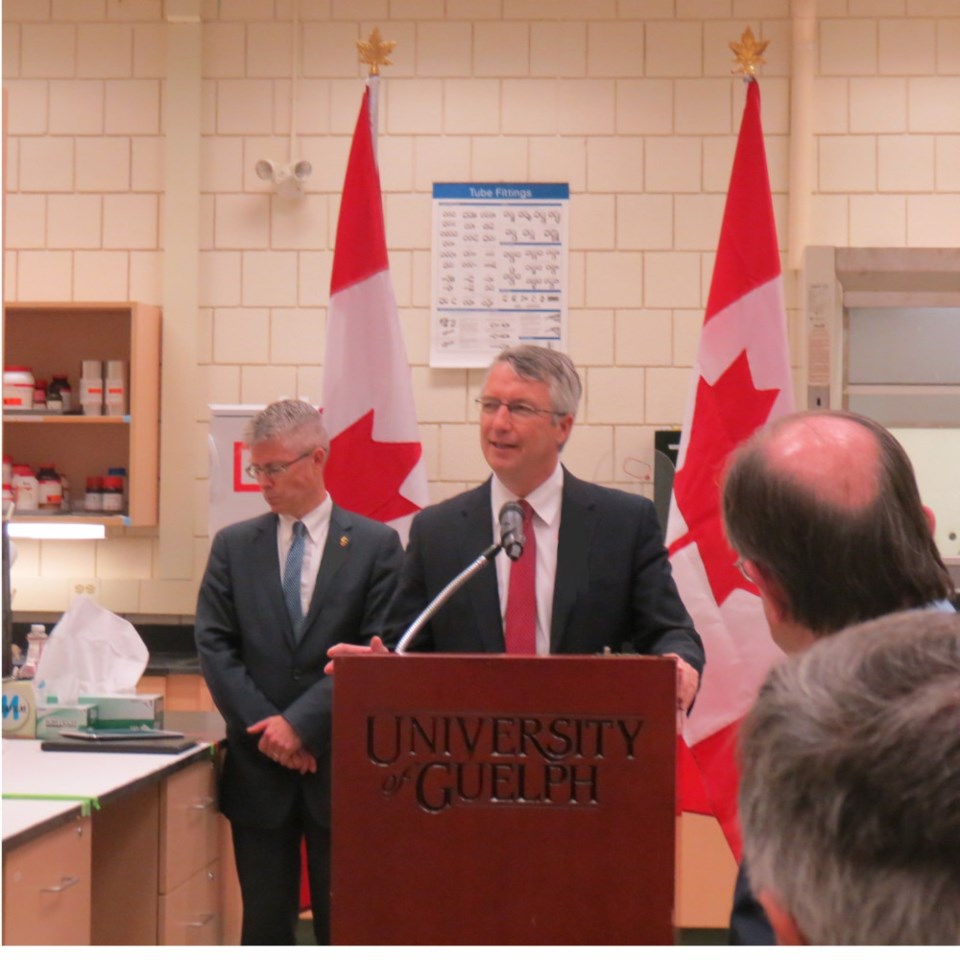NEWS RELEASE
LLOYD LONGFIELD, MP FOR GUELPH
*************************
Canada’s scientists are driven to make discoveries that lead to new opportunities, a stronger economy and a growing middle class. What they need are the sophisticated tools and laboratories that help them break new ground in areas such as climate change, clean energy, ocean research and artificial intelligence.
Lloyd Longfield, Member of Parliament for Guelph, acknowledged this today with a Government of Canada investment of $335,000 in five projects at the University of Guelph. These investments, provided through the Canada Foundation for Innovation’s (CFI) John R. Evans Leaders Fund (JELF), will help universities attract and retain top talent from around the globe — particularly early-career researchers — with equipment that will give them a competitive advantage in their field.
U of G food science professor Gisèle LaPointe will receive $140,000 to study two pathogens responsible for about 90 per cent of all food-borne disease. Food-borne disease is a major economic burden, affecting one in eight Canadians each year. The 2008 listeriosis outbreak in Canada cost an estimated $242 million.
Engineering Profs. Christopher Collier and Ashutosh Singh will use their $83,992 grant to help establish a photonics/agri-food research laboratory to help detect microbes, allergens and foreign objects in food.
Psychology professor Barbara Morrongiello received $42,000 grant to continue her research on preventing pedestrian injuries among children. Unintentional injury is the leading cause of death for Canadian children. By using virtual reality technology, Morrongiello aims to learn about crossing behaviour and skills. Her work is intended to improve city planning for traffic flow and road design and to inform school policies.
Prof. Nadia Amoroso, School of Environmental Design and Rural Development, received $50,000 for a digital design research hub to help devise smarter data-driven planning and environmental solutions.
Prof. Kristel Thomassin, Department of Psychology, will use her $18,867 grant to study ways of improving delivery of youth mental health interventions.
The funding announced today is part of the more than $42 million announced by the Honourable Kirsty Duncan on April 11. The national amount will support 37 new projects at 186 universities and research hospitals across the country.
*************************
